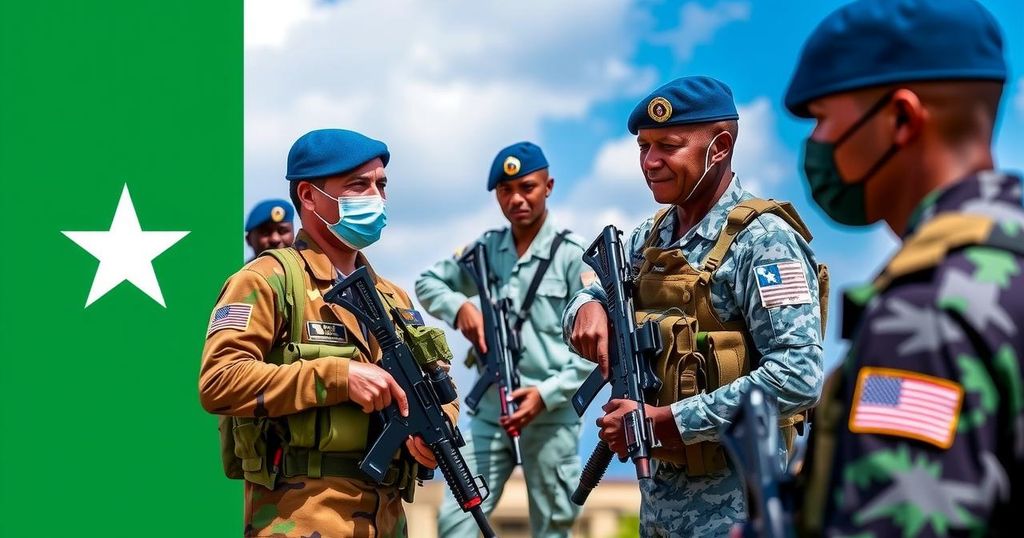U.S. Advances Initiative to Convert Kenya-Led Force in Haiti to UN Peacekeeping Mission

The U.S. is enhancing its initiative to switch the Kenya-led force in Haiti to a U.N. peacekeeping mission amidst increased gang violence. Despite proposals for a funding strategy, violence has surged, leading to threats on air operations and political unrest. The transition faces challenges from notable countries alongside funding shortages, with concerns over historical interventions complicating public support for foreign military presence.
The United States is intensifying its efforts to convert the Kenya-led multinational force in Haiti into a U.N. peacekeeping mission, prompted by a surge in gang violence that recently grounded all air traffic to Port-au-Prince. Initially proposed in early September, this move aims to secure sustainable funding for the U.N.-supported force assisting Haiti’s national police amid a significant financial shortfall. In recent weeks, violence escalated sharply, culminating in a chaotic situation following the termination of Haiti’s interim prime minister due to political strife. Gang control has reached alarming levels, with a U.N. estimate citing that gangs now dominate 85% of the capital. The crisis was further exacerbated when gangs temporarily closed the main airport by attacking aircraft, resulting in injuries to airline staff. In an attempt to formalize the transition to a U.N. peacekeeping force, the U.S. sought approval from all 15 U.N. Security Council members for a draft resolution. This resolution requests U.N. Secretary-General Antonio Guterres to initiate contingency planning for the transformation, expected to take several months. However, diplomatic channels remain tense, as both Russia and China have expressed reservations, delaying a consensus. The multinational force, originally intended to comprise 2,500 international police officers, currently has only about 430 personnel deployed. While Kenya’s President indicated plans to send an additional 600 troops in November, the U.N. continues to face severe financial obstacles that may hinder its operations. The existing funding, largely dependent on voluntary contributions, remains critically insufficient to meet the operational costs. The surge in gang violence in Haiti can be traced back to the 2021 assassination of President Jovenel Moïse, leading to increased criminal activities and civil unrest. Despite calls from Haitian leaders for a comprehensive U.N. peacekeeping initiative, public sentiment towards foreign military presence remains mixed, with memories of past interventions clouded by allegations of misconduct and public health crises. The unfolding situation in Haiti underscores the urgent need for effective international collaboration to restore order and enable sustainable governance.
The context of this article revolves around Haiti’s severe ongoing crisis characterized by rampant gang violence and political instability following the assassination of President Jovenel Moïse in 2021. These alarming conditions have necessitated foreign intervention, leading to the establishment of a Kenya-led multinational force aimed at stabilizing the situation. However, this initiative has faced significant challenges, including funding shortages, inadequate troop deployment, and historical apprehensions regarding international military interventions in Haiti.
In summary, the United States is committed to transforming the Kenya-led multinational force in Haiti into a U.N. peacekeeping force, driven by escalating violence from gangs that threaten the stability of the nation. While initial steps have been taken to propose the transition and secure support, significant obstacles remain, including lack of resources and hesitance from key diplomatic players. The complexities surrounding this issue highlight the need for a collaborative and well-resourced approach to restore peace and functionality in Haiti.
Original Source: apnews.com







